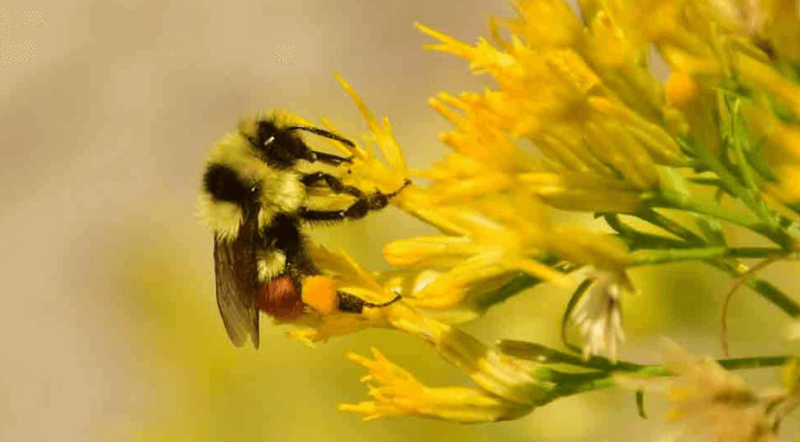The world’s most widely used insecticides pose a serious danger to both honeybees and wild bees, according to a major new assessment from the European Union’s scientific risk assessors.
The conclusion, based on analysis of more than 1,500 studies, makes it highly likely that the neonicotinoid pesticides will be banned from all fields across the EU when nations vote on the issue next month.
The report from the European Food Safety Authority (Efsa), published on Wednesday, found that the risk to bees varied depending on the crop and exposure route, but that “for all the outdoor uses, there was at least one aspect of the assessment indicating a high risk.”
…
The Efsa assessment includes bumblebees and solitary bees for the first time. It also identified that high risk to bees comes not from neonicotinoid use on non-flowering crops such as wheat, but from wider contamination of the soil and water which leads to the pesticides appearing in wildflowers or succeeding crops.
…
[A] spokesman for Syngenta, a neonicotinoid manufacturer, said: “Efsa sadly continues to rely on a [bee risk guidance] document that is overly conservative, extremely impractical and would lead to a ban of most if not all insecticides, including organic products.”Read full, original post: Total ban on bee-harming pesticides likely after major new EU analysis































